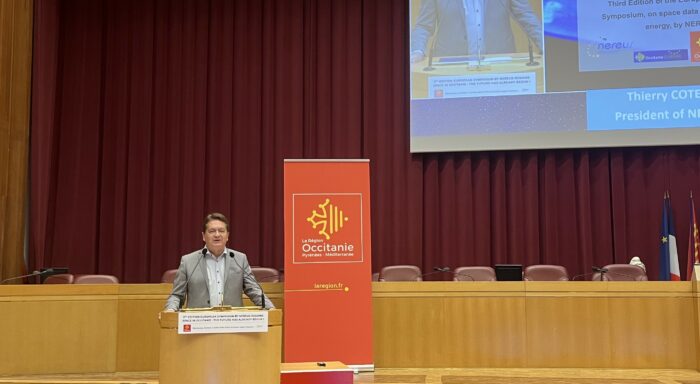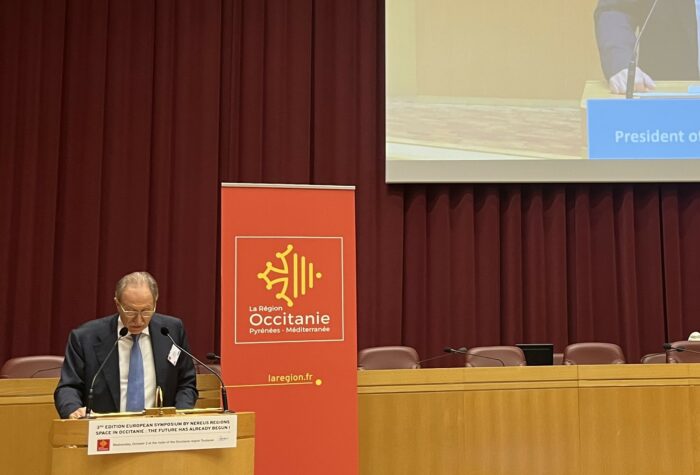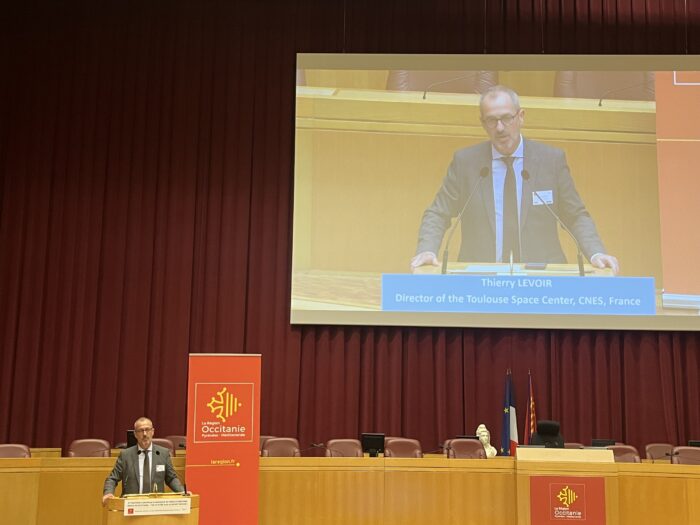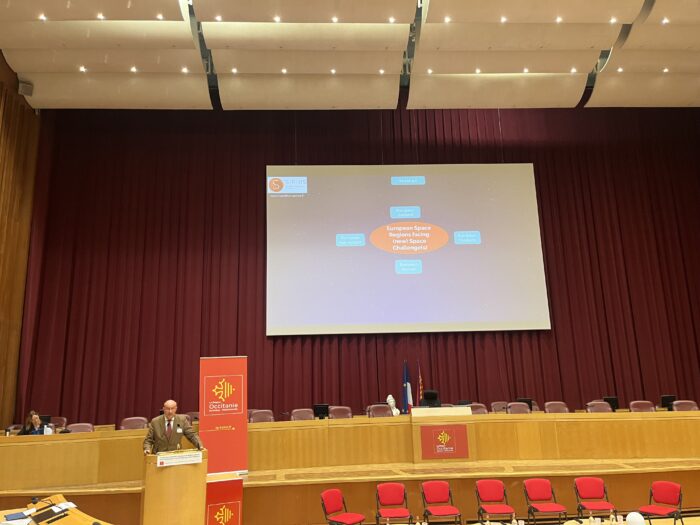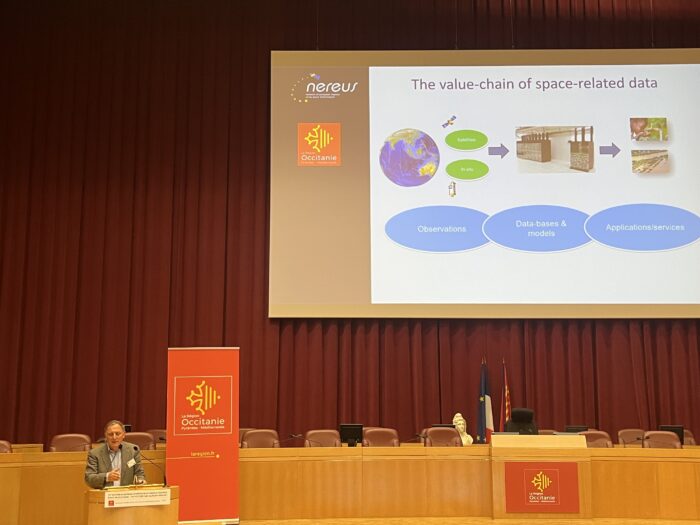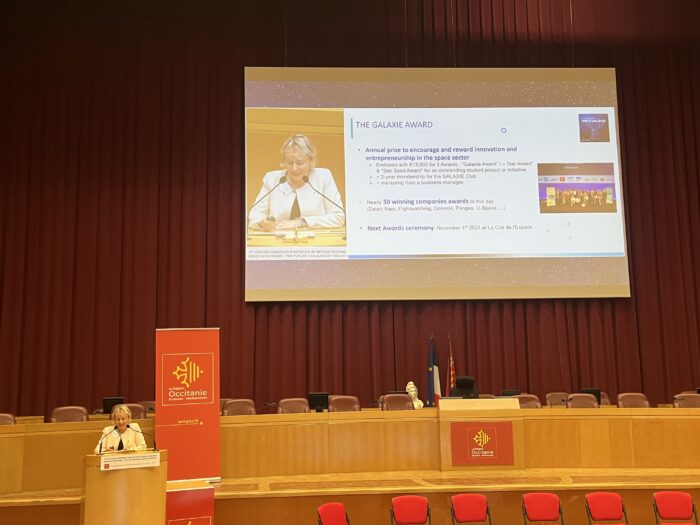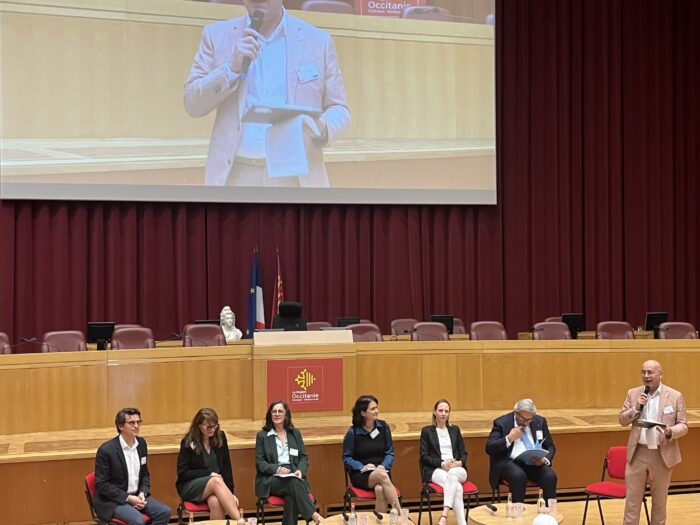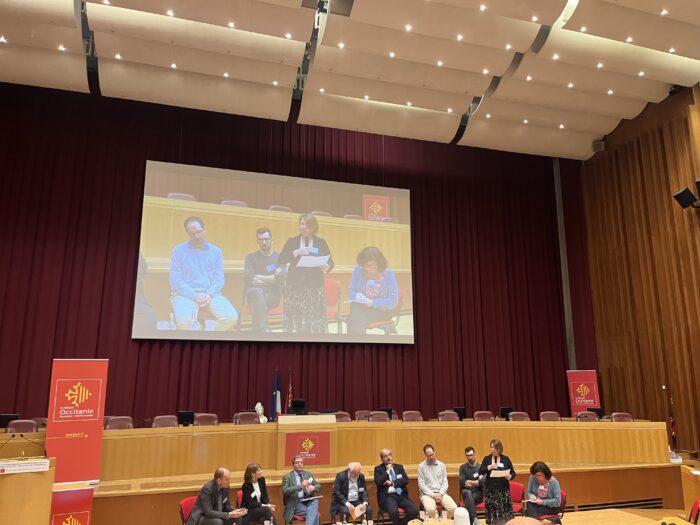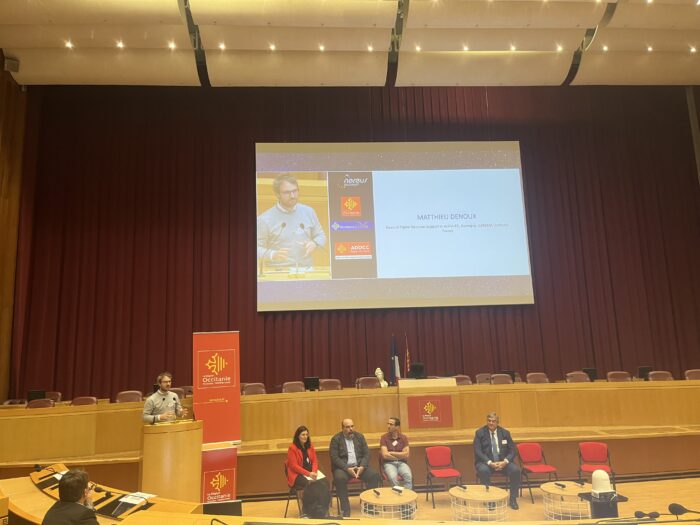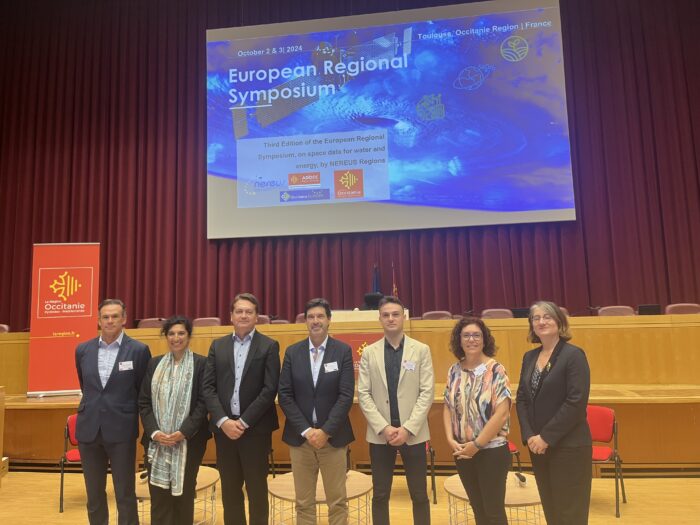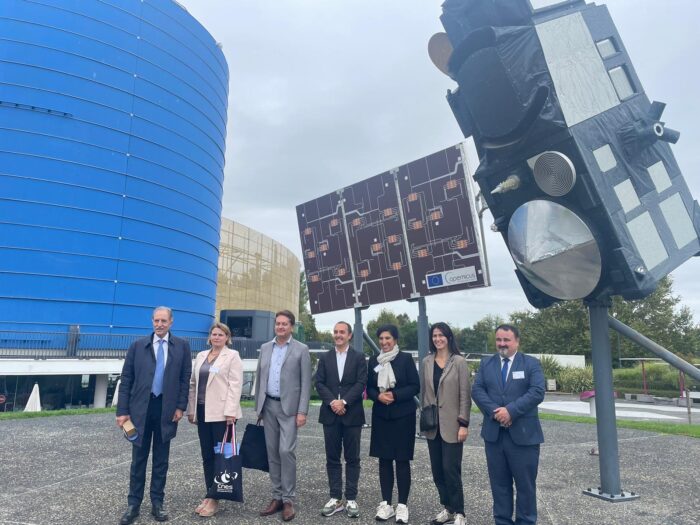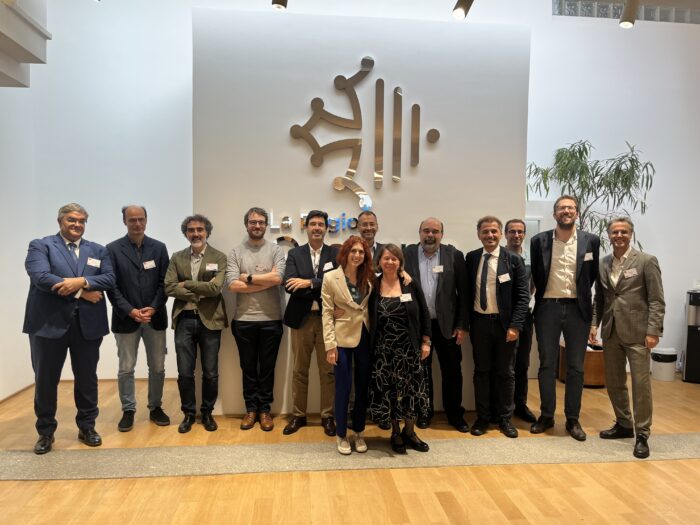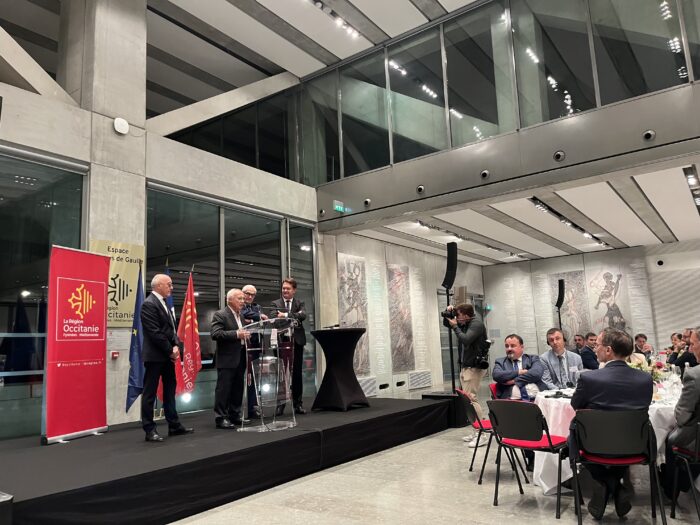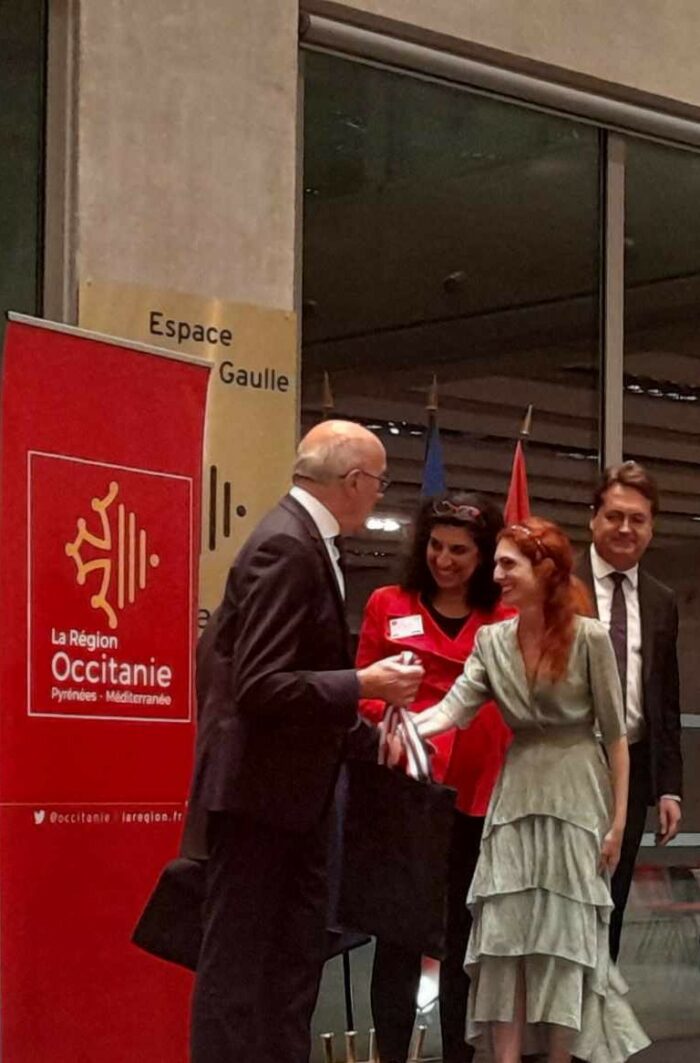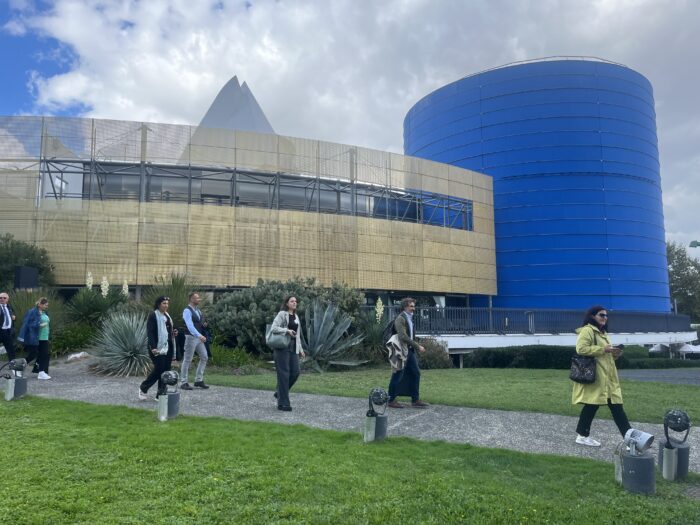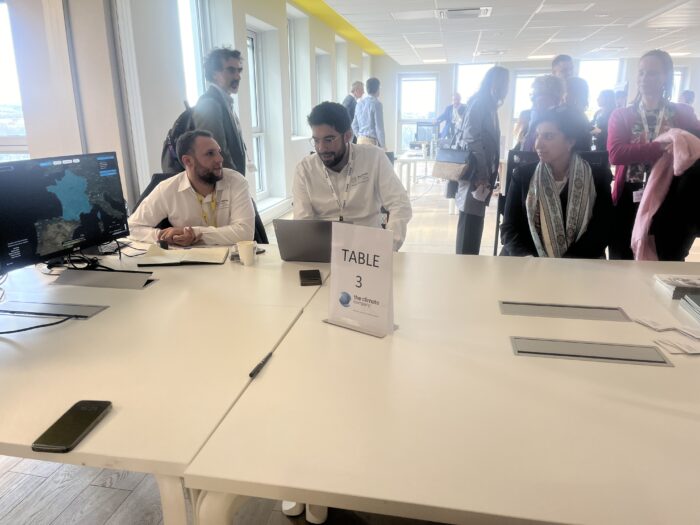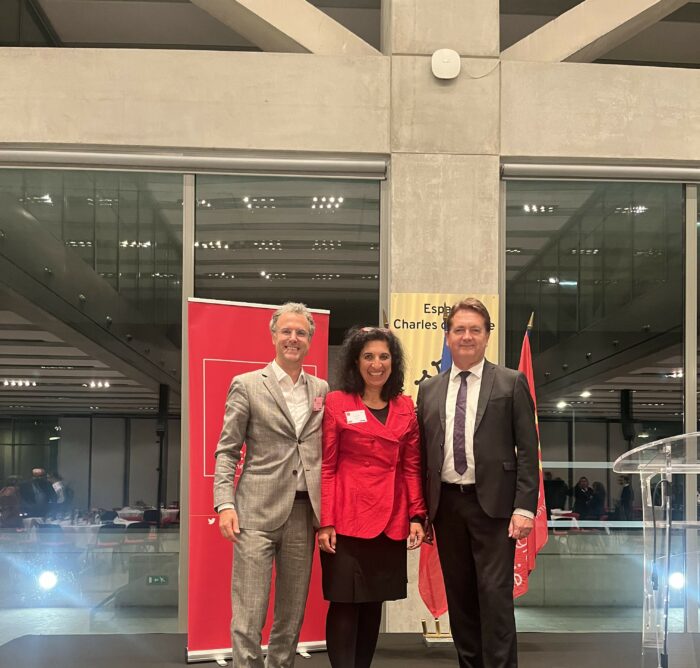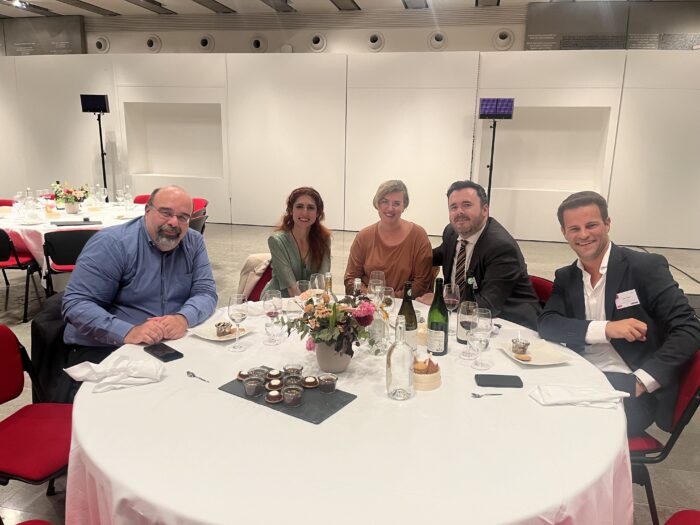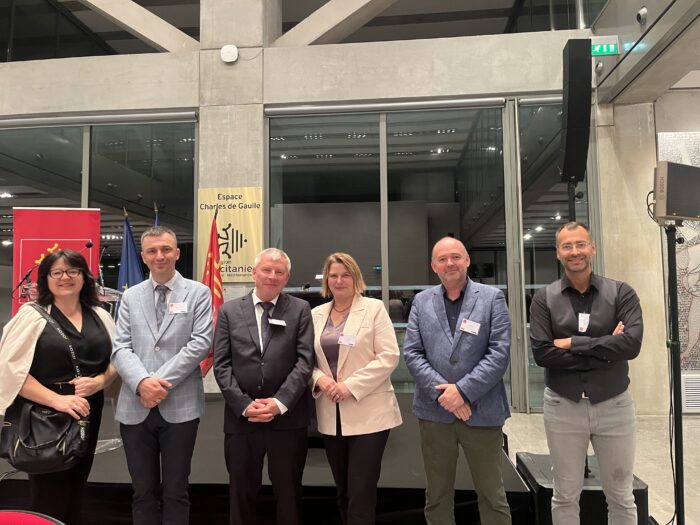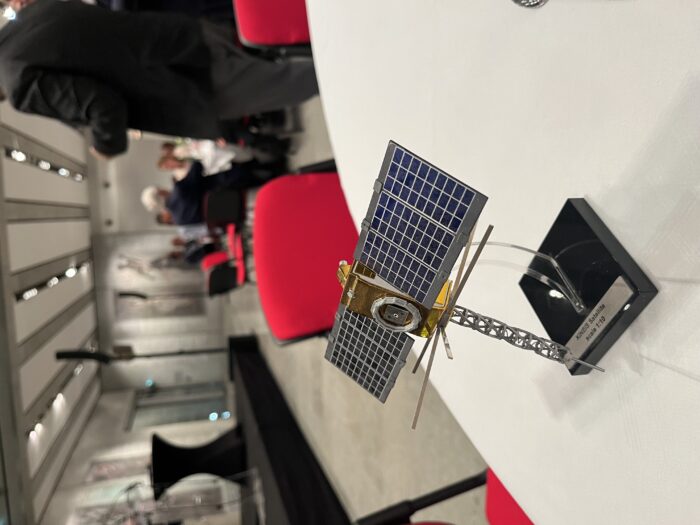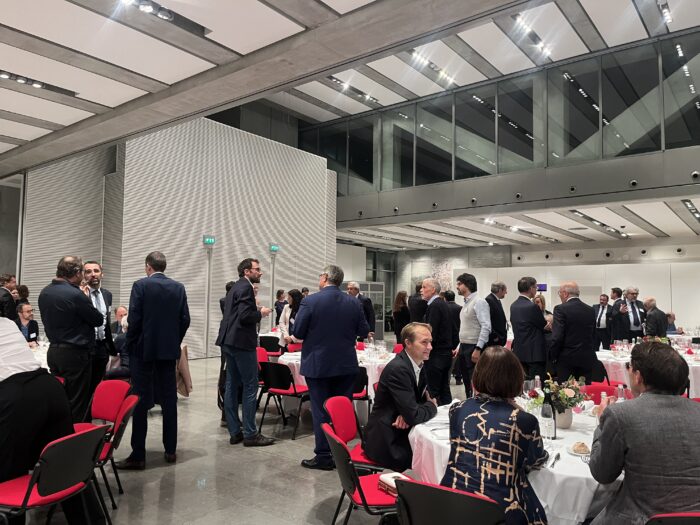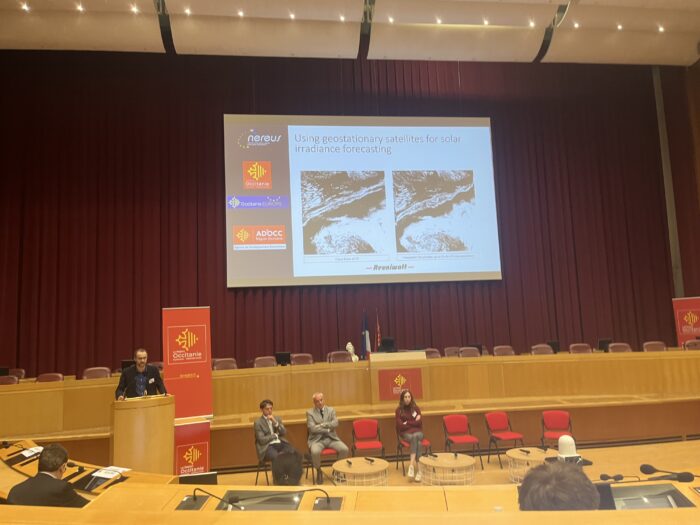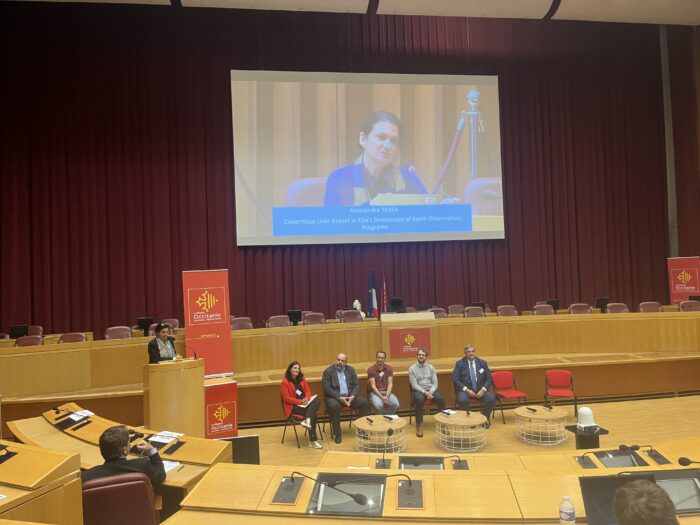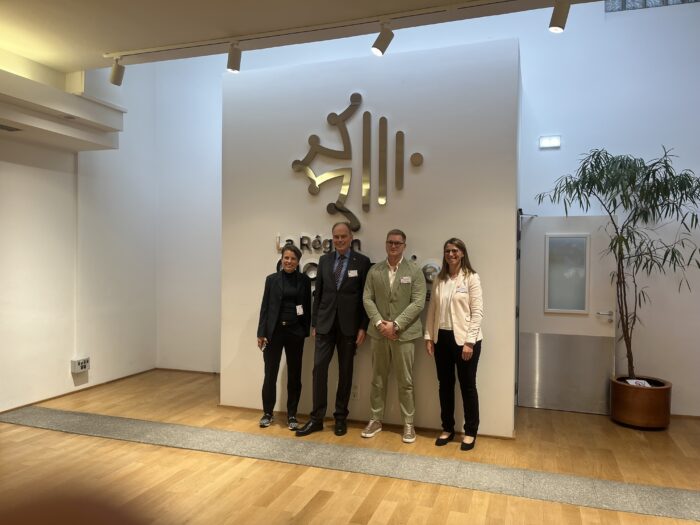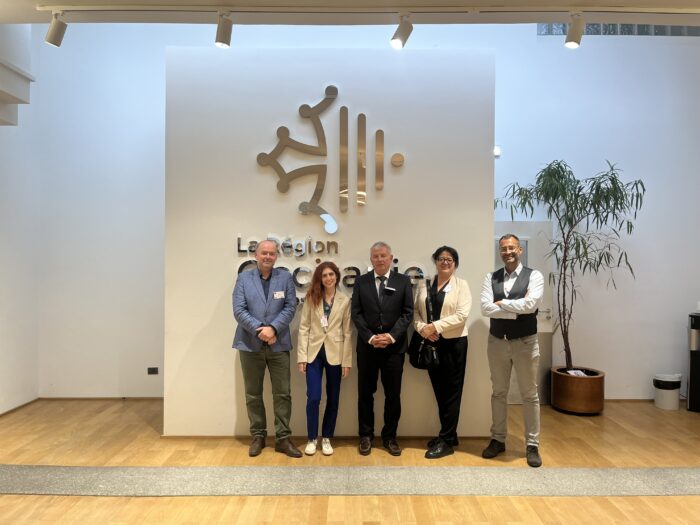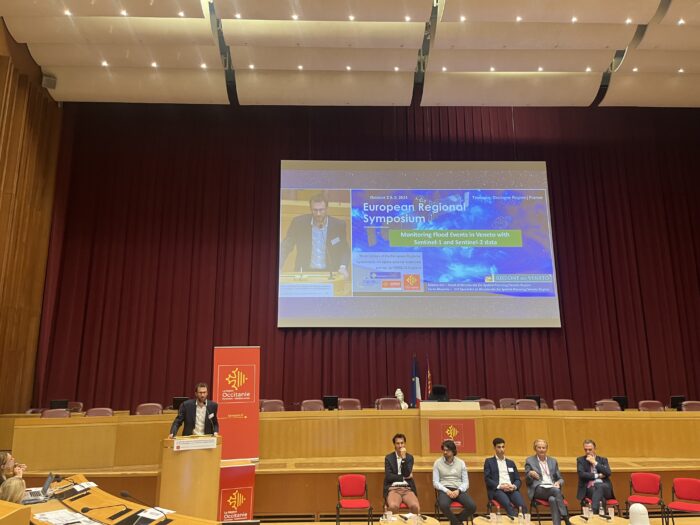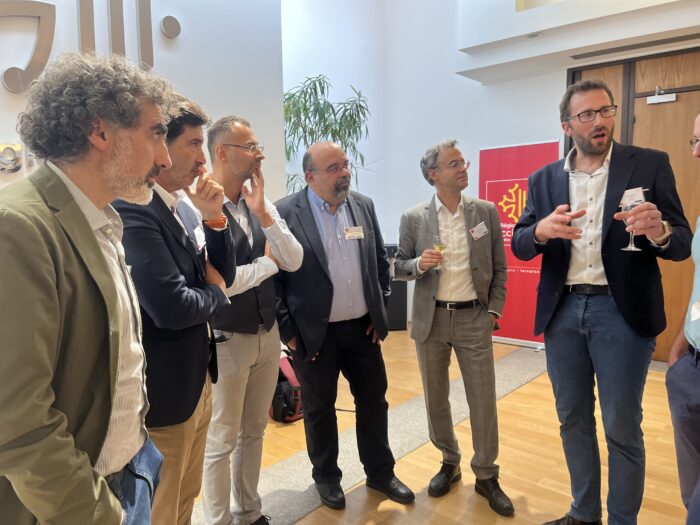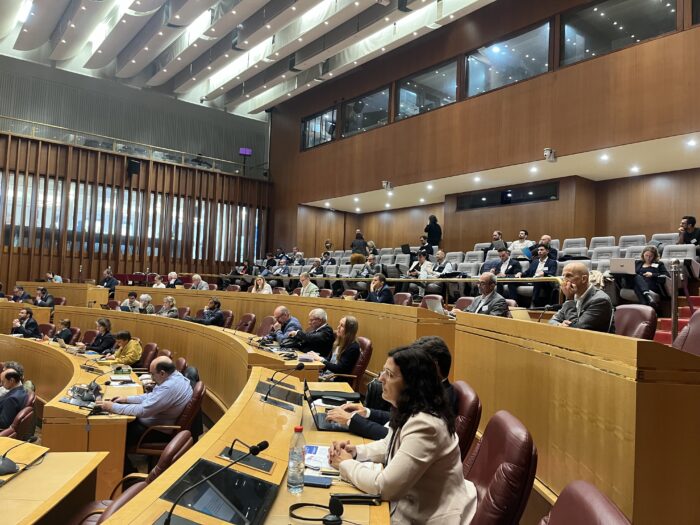On October 2-3, 2024, NEREUS and the Occitanie Region organized the 3rd European Symposium by NEREUS regions focused particularly on the context of water and energy across Europe. This event is part of an annual format which aims at fostering dialogue among regional representatives & politicians, industry experts, and academics, sharing best practices and exploring solutions to regional challenges.
Known for its extensive industrial ecosystem and its recently published 2023 space strategy, Occitanie serves as a model case space ecosystem enhancing regional development. As France’s second-largest metropolitan region, Occitanie boasts a diverse range of industries, strong sectoral representation, and vibrant communities. Its robust space industry and service sectors are supported by a dense network of engineering schools, universities, research laboratories, and SMEs.
This combination fosters ideal conditions for the development of dynamic new activities and markets, inviting other regions to explore and engage with the opportunities presented by the space ecosystem. In this respect, the region has a special partnership with CNES, the French space agency, which welcomed the NEREUS community.
Furthermore, the third edition featured a robust agenda and list of speakers, highlighting the strong interest from members and experts eager to contribute.
Highlights from the Symposium:
The first day of the symposium opened with the welcome addresses featuring distinguished institutional and political representatives:
- Opening Remarks: Thierry Cotelle, President of NEREUS, expressed gratitude to Occitanie President Carole Delga for hosting and highlighted the role of regional ecosystems in tackling global challenges (video link). He emphasized that political dialogue and interregional collaboration are vital for NEREUS’s growth and success in the space sector. Vice-President Vito Bardi noted Basilicata’s robust space ecosystem centered on Earth observation, backed by research, large firms, and SMEs. He called for regions to participate in public consultations to foster partnerships and create a competitive “single market of space” through innovative business models. Nadia Pellefigue, Vice-President for Higher Education, Research, Europe, and International Relations, underscored the importance of regional ecosystems in advancing space research and innovation.
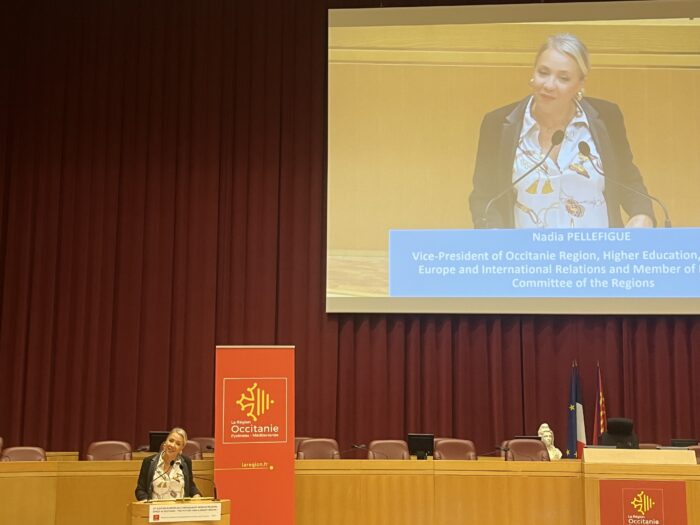
Nadia Pellefigue, Vice-President for Higher Education, Research, Europe, and International Relations
- CNES Contributions: Thierry Levoir, Director of the Toulouse Space Center, highlighted the French Space Agency’s role in advancing Earth observation to address key issues like water and energy management.
- Academic Insights: Michael Toplis from the University of Toulouse discussed the collaboration between academia and the private sector in leveraging space data for societal benefits. Regarding the future of European Space, Emeritus Professor Lucien Rapp of the Toulouse School of Law emphasized the need for alignment with the Space 4.0 framework, focusing on sustainability and market dynamics.
- Space ecosystems: Catherine Lambert, President of the Club Galaxie, detailed initiatives to foster innovation by connecting stakeholders across the space value chain.
Roundtable Discussions of both days:
- EU Space Sector Commercialization: Pierre-Alain Bosc (Airbus DS Intelligence) chaired a session on maximizing the EU Space Programme’s impact on regional competitiveness. Elisabeth Hamdouch, Deputy Head of Unit for Copernicus at the European Commission’s DG DEFIS, highlighted the EU Space Programme’s role in addressing Europe’s challenges, underscoring the successes of Copernicus and Galileo and the need for secure communication. She also advocated for using regions as testbeds for EU space activities. Alessandra Tassa, a Copernicus User Expert at ESA, emphasized the importance of satellite continuity for decision-making and announced the next call for articles under Copernicus4regions to gather regional case studies.
2. Water Management: Daniela Iasillo, Planetek Italia, led discussions on Earth observation data for sustainable water management, featuring insights from leaders like Samuel Morin (Météo-France) and Catalina Rodriguez (Aerospace Valley). Other speakers including Andreas Kanstein (Managing Director, Cesah (Hesse), Jean Marc Gardin (Telespazio) and Eduardo Pereira (Canary Islands Geo Innovation Program) exchanged practices on using EO for flood mitigation and resource management.
3. Energy Transition: Roya Ayazi, NEREUS Secretary General chaired the panel on energy highlighting environmental sustainability as one of the main goals of cities and regions challenges. Key speakers such as Lénaïc Mallet (ABGI) and Catherine Mandler (Evenflow) explored the intersection of space data and energy security, focusing on sustainable urban heat adaptation and solar energy forecasting. Sylvain Chapon from Siradel discussed 3D city modeling, facilitating post-crisis simulations and decision-making.
The symposium provided an excellent opportunity to expand NEREUS membership. Representing the Canary Islands government, David Pérez-Dionis, Jerónimo Falcón from Proexca, and Eduardo Pereira, Manager of the Technological Park of Fuerteventura, introduced the Canarias Geo Innovation Program 2023 and formed a partnership with the Azores for the upcoming symposium in 2025. As a hub for the aeronautical and aerospace sectors, the Canary Islands promotes collaboration and access to the latest industry developments. During the event, the Government of the Canary Islands officially joined the NEREUS network in collaboration with the Institute of Astrophysics of the Canary Islands.
For the first time, there was a special VIP programme for the Presidents of the regions to liaise, and exchange and dialogue emphasizing the association’s commitment to political dialogue and advocacy as a key pillar of its activities. A visit to CNES had the objective to showcase the organization’s structure and its applications for regional administrations, concluding with a VIP lunch. The afternoon featured a visit to Cité de l’Espace, and ADS (Airbus Defence and Space) where attendees were given a comprehensive overview of Earth monitoring and surveillance activities, with a focus on sustainable development, environmental protection, and resource management.
Additionally, the Earth Observation Working Group held an informal meeting during the sessions to discuss working procedures and outline next steps.
At the end of the first day, a social dinner took place with the presidents of NEREUS regions at Espace Charles de Gaulle. Thierry Cotelle, President of NEREUS, gave a welcoming speech celebrating the 17th anniversary of NEREUS and presented the Nereus Trophy, a small satellite replica, alongside Vito Bardi, President of Basilicata Region, and Paulo Estêvão, Regional Secretary for Parliamentary Affairs and Communities, representing the President of the Azores Region. Finally, he thanked Alain Beneteau, the first president of NEREUS for his visionary work to create NEREUS.
The side activities included a visit to Aerospace Valley and IRT, where participants engaged with the SCALE (Space Climate League). Presentations by The Climate Company, I-Sea, Waltr, and LTU Technology showcased resilience solutions. Next, the visit to Cité de l’Espace began with a reception hosted by Arnaud Mounier, Director of the renowned space museum and theme park. The visit included a viewing experience at the IMAX theater for the group, and the Lune Explorer activity, which offers an immersive exploration of lunar missions and lunar science focused on themes related to space exploration, science education, and cultural outreach.
Through this symposium, NEREUS reinforced its commitment to empowering regions to actively shape their strategies, European space policy and be at the forefront on fostering sustainability in water and energy through space-based solutions.
More than 160 participants joined the event. All NEREUS members were invited to join the 4rth edition European Symposium by NEREUS Regions in 2025 hosted by the Azores region. Moreover, Polish regions signalled an interest in hosting the 2026 European Symposium.
Experiences from the participants
Mr. Cotelle shared the positive feedback he received from participants, and member regions’ wishes to organize the Symposium in the future, inspired by the success of this 3rd Symposium.
“We enjoyed the congress and the quality of the speakers” Catalonia delegation
“The Symposium was very interesting and we were also able to take the opportunity to exchange with other members of NEREUS.” David Pérez-Dionis Chinea, Director General de Coordinación Orgánica y Proyectos Estratégicos Presidencia del Gobierno (link)
“I left with a greater understanding of how EO is being used on a regional basis, and how important EO is for vital services. The tour at the end was especially nice.” Catherine Mandler, Space Economist, Evenflow
Presentations (shared directly with participants). This is the dataset shared by Catalonia region (link).
Videos (link).
Photos upon request

